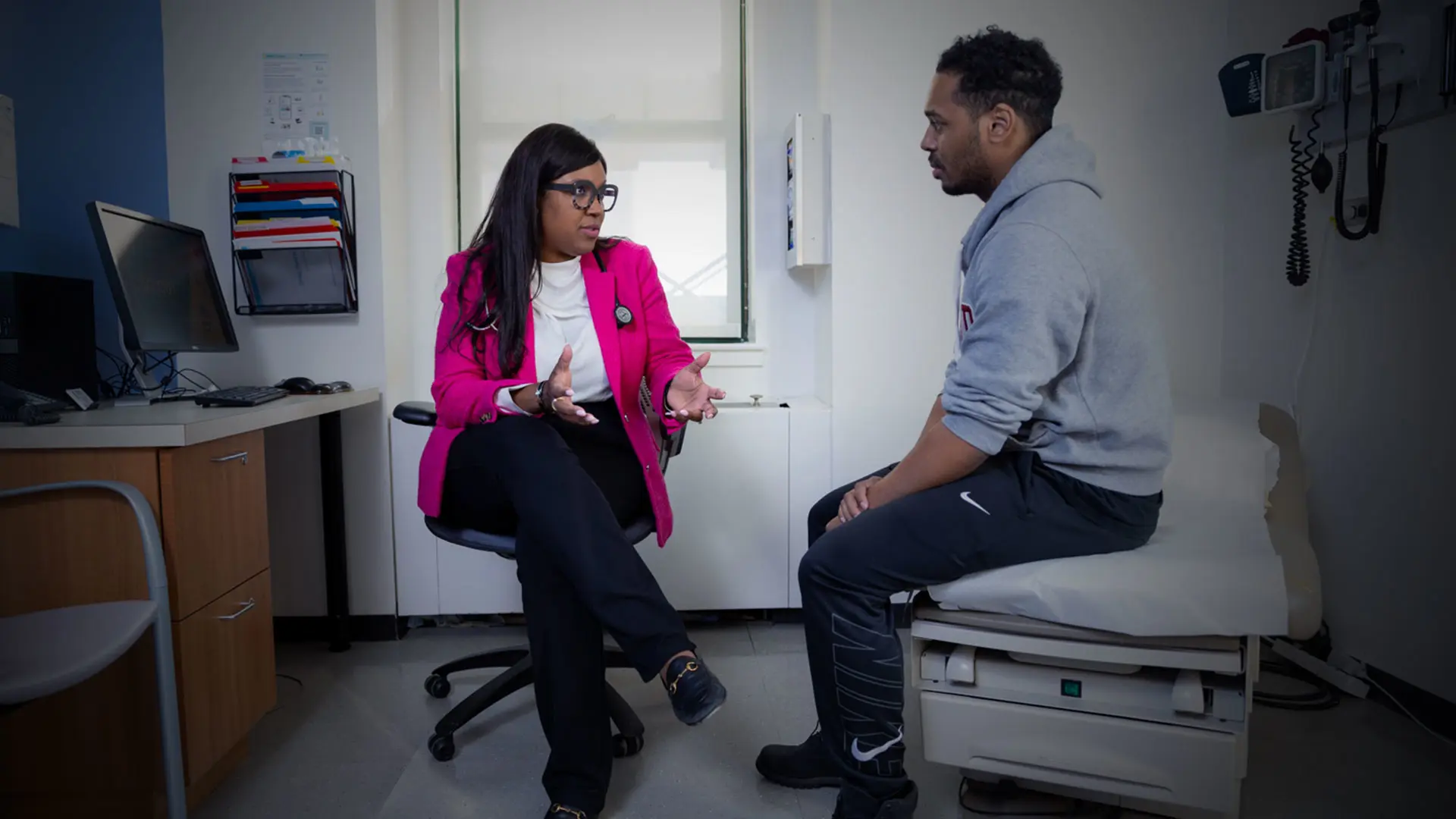For Pascale M. White, MD, MBA, MS, FACG, addressing health equity and disparities in gastrointestinal (GI) and liver disease has never been more important than it is today. She will have this opportunity as the inaugural Director of Health Equity in Action for Liver and Digestive Diseases (HEALD), a new program that focuses on health equity initiatives within the divisions of Gastroenterology and Liver Diseases at the Mount Sinai Health System.
"We continue to see persistent disparities within the fields of GI and liver disease across racial, ethnic, and socioeconomic backgrounds,” says Dr. White, Associate Professor of Medicine (Gastroenterology, and Liver Diseases) at the Icahn School of Medicine at Mount Sinai.
In her new role, she will be leading cross-divisional health equity initiatives aimed at identifying and addressing disparities among GI and liver patients. She is starting with a focus on colorectal cancer screening and, in partnership with her colleagues in the Division of Liver Diseases, hepatitis B and C screening.
“Disparities are often driven by multiple barriers, especially when it comes to screening. Barriers can range from a lack of knowledge to be screened, to poor access to screening services,” Dr. White says. “We want to explore if specific barriers exist in Mount Sinai’s GI and Liver divisions and pinpoint actionable opportunities for improvement.”
Colorectal cancer is the second-leading cause of cancer-related deaths in adults in the United States. It is estimated that more than 150,000 people will be diagnosed with colorectal cancer this year. Colorectal cancer is preventable with screening. Patients can be screened for colorectal cancer via stool-based tests or a colonoscopy.
“We all know the importance of getting screened, and our goal is to have as many lives saved by providing our patients with equitable access to our services,” Dr. White explains. “We are taking a broad approach to looking at opportunities for improvement because it may require a combination of solutions, such as a systems and educational approach.”
As part of that approach, Dr. White is driving forward these initiatives through collaborative partnerships with community leaders. “We know that we cannot undertake equity initiatives without the input of those whom we are serving,” she explains. “A large part of my role is reaching out to the community to see what is important from their standpoint and exploring ways we can collaborate.”

Dr. White is leading cross-divisional health equity initiatives aimed at identifying and addressing disparities among GI and liver patients.
In addition to community interviews, Dr. White is gathering and analyzing institutional data to gain more insights on the patients Mount Sinai is serving, assess whether there are any disparities in access, and identify potential improvements and interventions. This includes the development of a GI and liver disease health equity dashboard that will serve as a dynamic, centralized platform for tracking the progress of initiatives aimed at addressing disparities while facilitating transparency, accountability, and continuous quality improvement in health equity efforts.
Dr. White also has a unique opportunity to advance the principles of HEALD through the United Hospital Fund’s Health Equity Fellowship, an 18-month experiential learning opportunity that was designed to address a pressing health equity challenge and cultivate the next generation of health equity changemakers in New York. Dr. White is one of eight clinicians selected to participate in the fellowship. She has chosen to collaborate with Boriken Neighborhood Health Center to address inequities in screening for colorectal cancer, hepatitis B, and hepatitis C. Boriken was established in 1974 by the East Harlem Council for Human Services, Inc., and provides bilingual health services to the East Harlem community.
“I am truly excited to have been chosen by the United Hospital Fund to develop an action learning plan that addresses screening inequities in GI and liver disease. To do it in East Harlem with Boriken as a community collaborator is significant,” says Dr. White.
“We are excited to work with Dr. White on this very important initiative,” says Adam Aponte, MD, Chief Executive Officer of the East Harlem Council for Human Services, Inc., which operates the Boriken Neighborhood Health Center. "Our community in East Harlem experiences higher rates of hep C infection and lower rates of colorectal cancer screening. We know that hep C is now a treatable disease, and that early detection of colon cancer is key to improved health outcomes. Working with Dr. White, we will help identify the barriers and improve the community’s awareness around both these health issues."
Dr. White is optimistic about the potential impact of HEALD’s initiatives. “With the support and engagement of institutional and community leaders, HEALD has the potential to drive tangible improvements in access to GI and liver disease care for all patients,” she says. “It really speaks to the importance of putting health equity at the forefront of what we are doing here at Mount Sinai.”
Dr. White answers questions about the HEALD program in this brief video.
Featured

Pascale M. White, MD, MBA, MS, FACG
Associate Professor of Medicine (Gastroenterology, and Liver Diseases)
